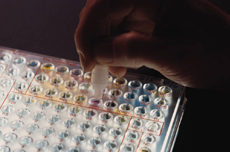
Generics Demand Stronger Proscriptions in REMS Compliance Letter Guidance
Generic drugmakers charge a December draft guidance doesn’t go far enough in enabling them to obtain bioequivalence testing batches for drugs protected by REMS product safety protocols.
The guidance would establish a process for ANDA filers to request FDA letters to brandmakers assuring them that the generics firm’s safety protocols will comply with the risk evaluation and mitigation strategies of the reference therapy.
Brandmakers who’ve been given such letters have still refused to hand over sample batches that generics firms need to perform bioequivalence testing in a planned ANDA, Impax says in one of eight comments submitted to the FDA by Tuesday’s deadline.
Moreover, the letters, which the FDA has issued before but codifies in the draft guidance, aren’t legally binding, Impax warns. The FDA should establish response timelines to letter requests and penalize brandmakers that don’t comply, as well as refer cases to the FTC, company says.
Other generics firms like ChemWerth suggest an end-run around the need for sample batches in the first place. To do that, the FDA would publish the resolution and biological data used to approve an NDA on its website and generics makers could conduct BE testing against that data, ChemWerth says.
Generics makers also warn that the guidance could have unintended consequences and doesn’t cover every potential need for sample batches.
GPhA, for instance, notes that some generics makers don’t need to perform at least some bioequivalence testing but still require samples for other reasons, including impurity profile comparisons. The FDA should expand the guidance beyond basic bioequivalence testing, the trade group argues.
GPhA also points to a potential flaw in the very logic of guidance on obtaining REMS letters — that brandmakers could refuse to hand over sample batches until a letter is presented. The FDA should clarify that a letter is not explicitly required to obtain REMS-covered drugs, GPhA says.
Generics makers weren’t the only ones to pick up on that discrepancy. PhRMA says the FDA should specify what brandmakers should do in the absence of a letter. The group’s comments outline the various concerns reference drugmakers have cited when refusing to hand over product samples.
The 2007 law that created REMS makes no exception for brandmakers to deviate from those safety protocols to supply ANDA filers with sample batches, PhRMA says. REMS are intended to keep abuse-prone drugs out of the wrong hands through training and various control measures.
Generics makers have complained that brandmakers are increasingly using REMS protocols and even safety protocols on non-REMS protected drugs as an excuse not to turn over sample batches. Nearly 40 percent of all new drugs come with REMS protocols, according to GPhA.
Brandmakers comply with those protocols for good reason, says PhRMA, noting firms face stiff penalties if they are found in violation. To guard against that happening, the guidance should set stringent requirements for generics makers seeking a compliance letter from the FDA and detail how the agency will ensure they stay REMS compliant, the trade group adds.
Celgene echoed the call for stronger requirements for generics, and urged the FDA to create a process for withdrawing a letter if an ANDA filer is found not to be REMS compliant. The brandmaker is currently embroiled in a lawsuit accusing it of using the safety protocols as an excuse not to turn over sample batches of its cancer therapies Thalomid (thalidomide) and Revlimid (lenalidomide).
Find all of the comments at www.regulations.gov/#!documentDetail;D=FDA-2014-D-1891-0001. — Bryan Koenig
